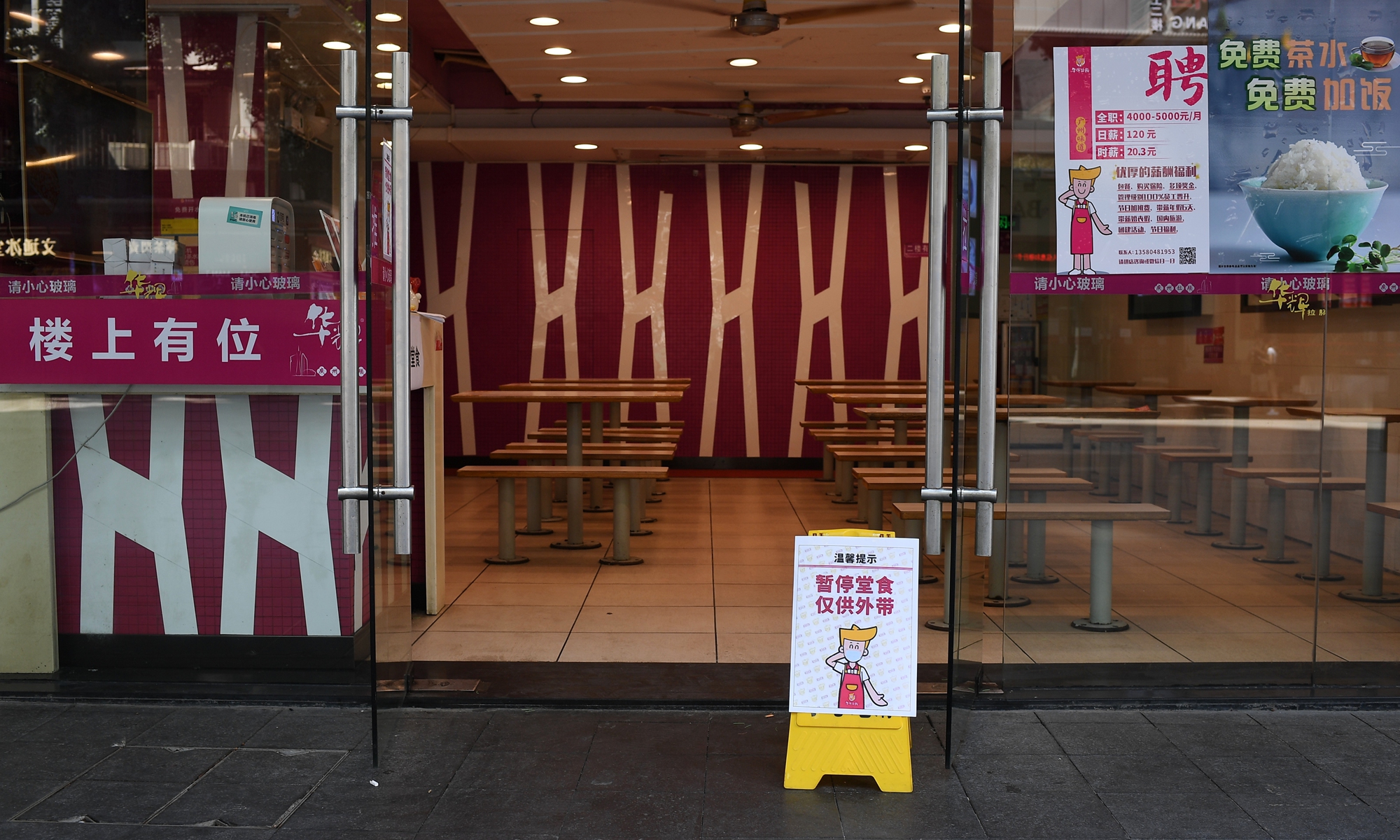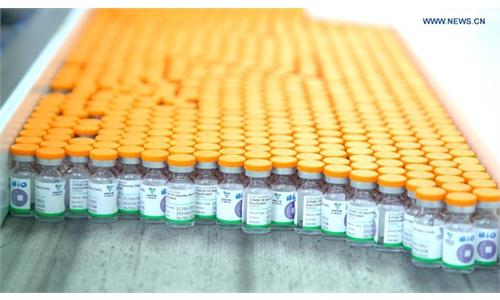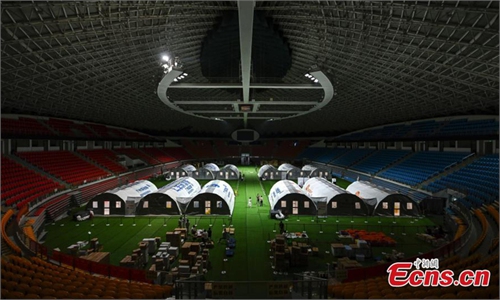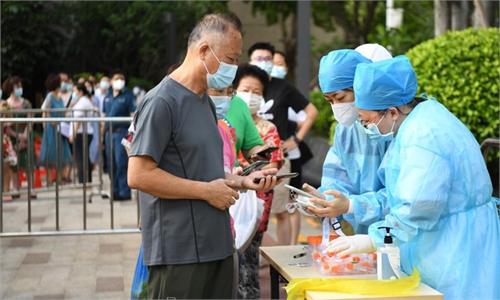Guangzhou speeds up world’s largest citywide nucleic acid testing as COVID-19 cases rise

A restaurant in Guangzhou's Yuexiu district announces that it has suspended in-store services and offers only takeout on Sunday. Photo: cnsphoto
Guangzhou, capital of South China's Guangdong Province, is speeding up its citywide nucleic acid testing, as a total of 94 infections were reported during the latest resurgence as of Saturday, including 80 confirmed cases and 14 asymptomatic infections.
Experts said that the COVID-19 strain in the latest epidemic, which was initially detected in India, is more contagious and spreads faster, posing a huge challenge for medical workers to complete the citywide nucleic testing within two days.
"Since the launch of the nucleic acid testing on May 26, as of 12 pm on Saturday, about 16.09 million nucleic acid samples had been collected in Guangzhou, and 33 people had been found to be positive in their testing results," Chen Bin, deputy director and spokesperson of the Guangzhou's health commission, said during a press conference held by the information office of the Guangzhou government on Sunday.
On Saturday, nine new domestic infections were reported in the city, including six confirmed cases and three asymptomatic infections.
To curb the spread of COVID-19, the city further tightened its travel restrictions. Starting from Monday at noon, passengers leaving Guangzhou are required to present negative nucleic acid test results that are less than 48 hours old.
Wang Guangfa, a respiratory expert at Peking University First Hospital, said that a city like Guangzhou, with a big population, faces greater challenges in citywide nucleic acid testing and epidemic prevention and control.
According to the seventh national population census, as of November 1, 2020, the total permanent population of Guangzhou stood at 18.67 million.
"Large cities have a higher possibility of imported COVID-19 cases and local outbreaks, and they also have higher speeds of transmission and spreading, as they have large 'floating populations' from all over the country," Wang told the Global Times on Sunday.
"To find patients from such a huge population can be very difficult as some patients are hard to detect if they do not go to the hospital when they only suffer from slight symptoms," Wang said.
Four districts of Guangzhou - Nansha, Zengcheng Huadu and Conghua - announced on Saturday that they would carry out nucleic testing over the weekend for all registered residents and personnel coming to Guangzhou. So far, all 11 districts in Guangzhou have carried out nucleic acid testing for all of their residents.
Wang noted that "the epidemic can be effectively controlled when the testing speed exceeds the spread of the epidemic, but the Indian strain will spread faster, which poses a larger challenge for the citywide testing, as it's not an easy task to finish citywide testing for such a large population."
To alleviate the shortage of nucleic acid testing staff in Guangzhou, the Health Commission of Guangdong Province began on Saturday to deploy medical personnel from other Guangdong cities to assist the process in the four districts in Guangzhou. Some of those staffers come from Shenzhen, Zhuhai, Huizhou and Dongguan. A total of 5,600 personnel have been deployed.
The latest epidemic resurgence in Guangzhou has also spread to the neighboring city of Foshan, which also issued a notice requiring people who want to leave the city to present a negative nucleic acid testing result taken within 48 hours, starting from Monday at noon.



